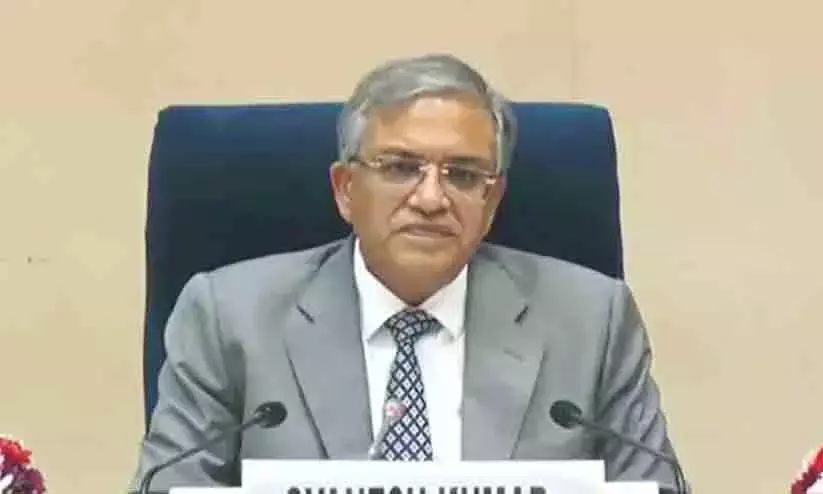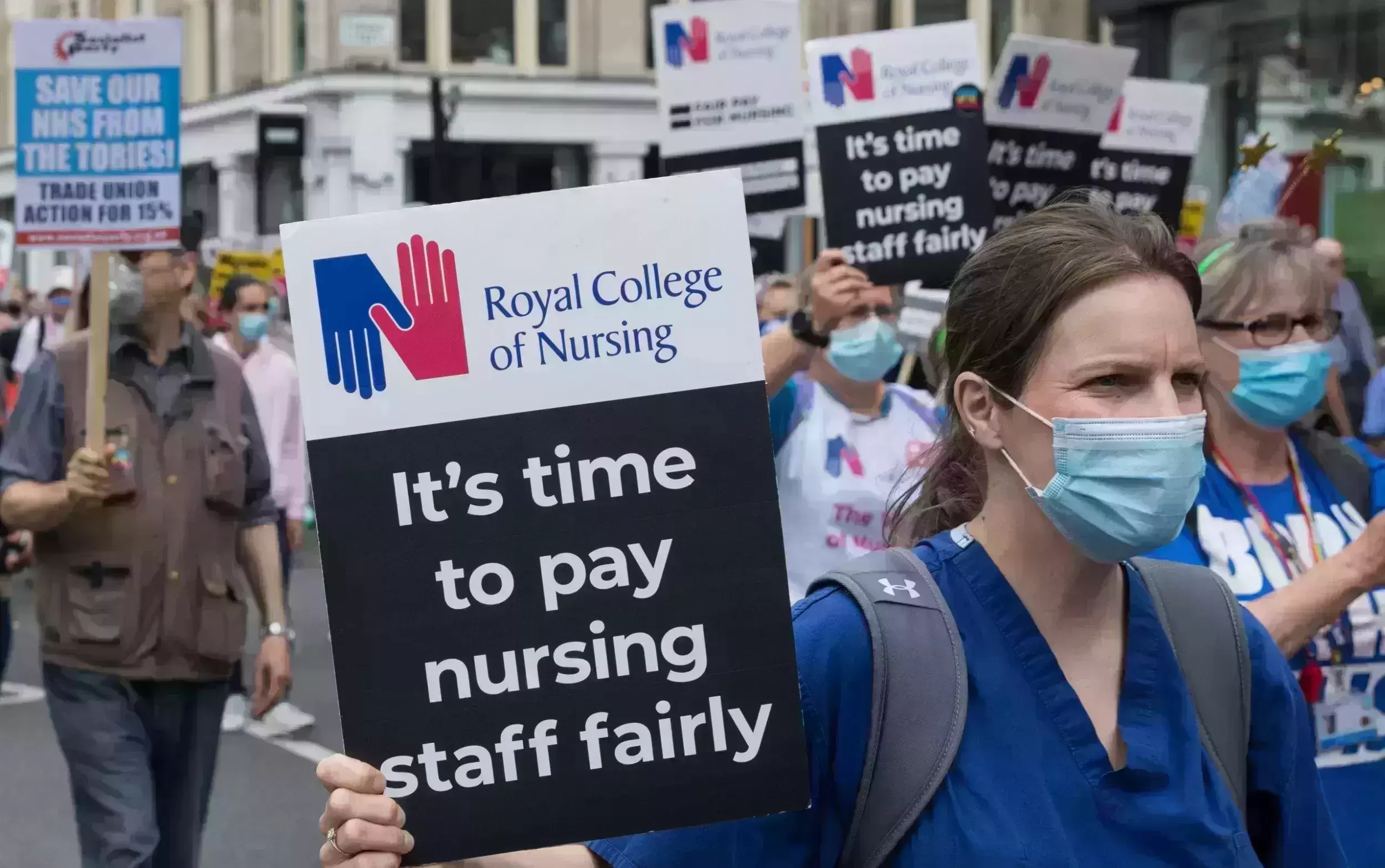
Grim realities of UK strikes, more of which are yet to come out
text_fieldsIn December 2022 the United Kingdom has been hit by a wave of strikes. Railway workers, the London Underground, nurses, teachers, civil servants and airport staff have all gone on strike. The industrial action is redolent of the notorious Winter of Discontent of 1978-79. That felled the Labour Government and brought Margaret Thatcher in as Prime Minister of a Conservative Government.
The military may have to run some vital public emergency services over Christmas. The fire brigade is threatening its first strike in 20 years. Strikes will continue well into 2023.
At present Rishi Sunak is the PM of a Conservative Government. Inflation is at an eye-watering 10%. Yet he will not agree to pay rises above 4%. He says any more will make inflation even worse. His critics retort that it is easy for him to say that with a fortune of GBP 800 million.
The transport strikes make it harder for people to get to work. Many white-collar jobs can be done from home. Not so with blue-collar jobs. Restaurants, pubs, theatres and cinemas would usually do a roaring trade at Christmas. But takings are down because people cannot travel so easily.
Alcohol consumption is part of Christian Christmas culture. People are reluctant to drink-drive so public transport is vital for people to get to and from Christmas parties.
England and Scotland have separate healthcare systems and education systems. There are strikes in both.
The problem is not just due to the Conservative Party in England. The Labour Party is in office in Wales. The Welsh Ambulance Service is in crisis. In Scotland, the Scottish National Party (SNP) has been ruling for 15 years. Scotland's National Health Service (NHS) is close to collapse. The SNP has been harping on about leaving the United Kingdom just to divert attention from the SNP's failing on multiple policy fronts.
The trade unionists are not paid by their employers whilst on strike. The trade unions pay their members to strike. But this strike fund will rapidly run out. Many people will have lost 20 days' pay by the end of 2022. Can they afford to lose more? Probably not. Strikes will ease off in 2023 because strikers do not wish to lose out on more salary, especially as they are not guaranteed to get an increase in their salaries.
The Labour Party is tipped to be swept to office in the December 2024 UK election. All these problems require money. The UK already has its highest tax burden for over 70 years and the highest inflation in over 40 years. Public services are likely to continue disimproving until the Labour Party takes office. Sir Keir Starmer will become Prime Minister. He will be given a hospital pass: almost literally.
There is no magic wand that Labour can wave to solve these problems. Whatever Labour does, these serious problems will probably persist for several years even if there is a major cash injection.
The United Kingdom urgently needs healthcare professionals. The blindingly blatant solution is work visas for Indian doctors and nurses. Another possibility would be to hire Cuban medical missionaries. Despite the name, these doctors and nurses are earning money for the Cuban Government. They are not treating people out of altruism. But the United States would not like the UK bankrolling Cuba.
The United Kingdom has to pay more for oil and gas due to the Ukraine War. It has paid for Ukrainian weapons and to host Ukrainian refugees. There is already grumbling that the UK has been over-generous to Ukraine and not prioritized its own people.
There is no easy solution to the UK's manifold problems. There is no end in sight. But the scale of the problems should not be overstated. The UK is still one of the highest-ranking countries on the Human Development Index. It has a superb health service despite the pressure. The United Kingdom is 20th in GDP per capita. Many British people take this for granted. They moan that the poor go to food banks. The poor still get food for free. The fact that they cannot afford to buy it is what rankles.






















